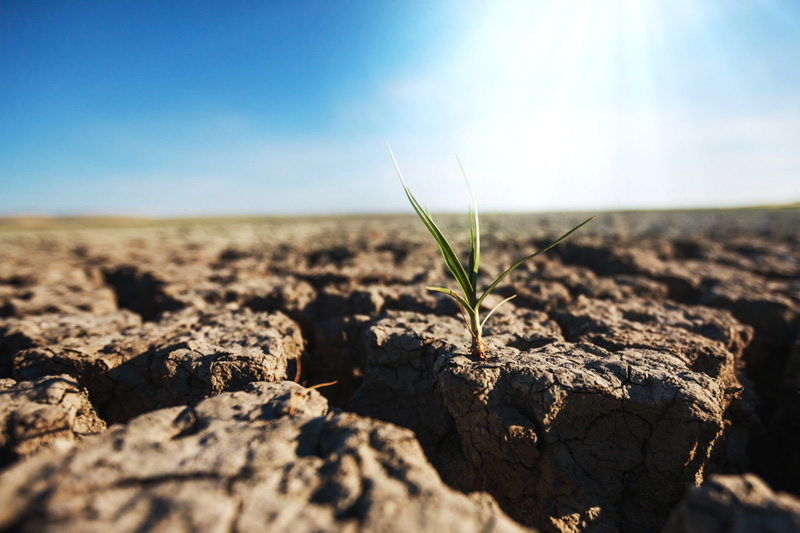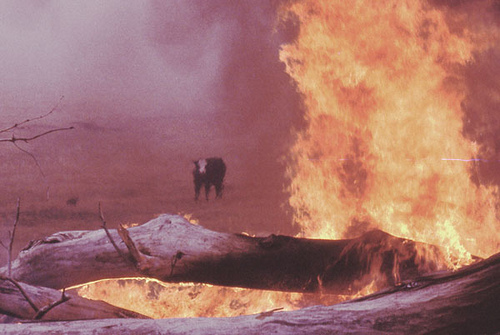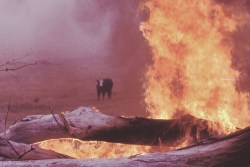Climate change will absolutely devastate American agriculture and forests. Don’t believe me? Ask the feds.
The Department of Agriculture released a new analysis of cropland and climate, showing that bets are off after the next 25ish years. From USA Today:
“We’re going to end up in a situation where we have a multitude of things happening that are going to negatively impact crop production,” said Jerry Hatfield, a laboratory director and plant physiologist with USDA’s Agricultural Research Service and lead author of the study. “In fact, we saw this in 2012 with the drought.” …
Farmers will be able to minimize the impact of global warming on their crops by changing the timing of farming practices and utilizing specialized crop varieties more resilient to drought, disease and heat, among other practices, the report found. …
By the middle of the century and beyond, adaptation becomes more difficult and costly as plants and animals that have adapted to warming climate conditions will have to do so even more — making the productivity of crops and livestock increasingly more unpredictable. Temperature increases and more extreme swings in precipitation could lead to a drop in yield for major U.S. crops and reduce the profitability of many agriculture operations.
Warmer weather, the USDA predicts, will also help weeds grow, potentially stunting grains and soybeans.
So OK, we’ll all be starving, but at least we can still appreciate our nation’s other beautiful planted scenery, right? That won’t be destroyed by massive wildfires and swarms of insects, right? Ha-ha, wrong. From the Associated Press:
Dave Cleaves, climate adviser to the chief of the U.S. Forest Service, said climate change has become the primary driver for managing national forests, because it poses a major threat to their ability to store carbon and provide clean water and wildlife habitat.
“One of the big findings of this report is we are in the process of managing multiple risks to the forest,” Cleaves said on a conference call on the report. “Climate revs up those stressors and couples them. We have to do a much better job of applying climate smartness … to how we do forestry.”
The bright side: We’ll have the last laugh in the faces of climate change deniers everywhere when we’re all starving, burning, covered in bugs, and broke from spending billions on trying to manage it all.




